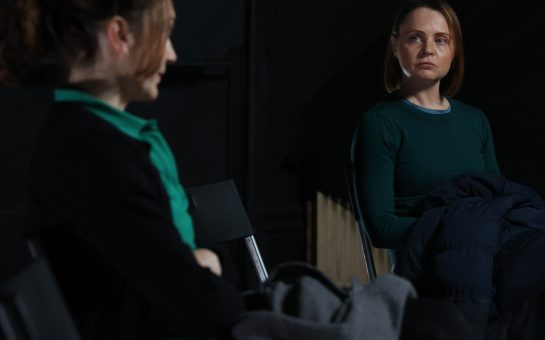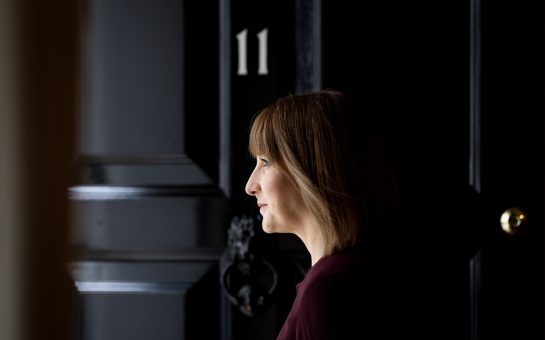Underachieving, absentee students, whose bad behaviour disrupts lessons and who lack understanding of how to keep safe in sexual relationships have seen a Manchester secondary school awarded the lowest possible rating by Ofsted.
Manchester Creative and Media Academy in Blackley was handed an ‘inadequate’ rating from the education watchdog in their latest report at the end of last month after an inspection on May 12.
The sponsor-led academy was deemed to have ‘serious weaknesses’ in several areas, including student behavior and safety, and the quality of teaching.
Lead inspector Pankaj Gulab urged in his findings that crucial changes must be made to raise standards of teaching and improve student achievement.
He found that, while the school is taking steps to improve, poor teaching and low expectations from teachers meant students were often absent, late to lessons, disruptive and confrontational.
As a result of this challenging behaviour – while only from a minority – and the failure of some teachers to properly address it or lead classes, students at MCMA are underachieving across the board.
Mr Gulab said: “In lessons, some students’ poor attitudes disrupt their own learning and that of others. Students say that this happens regularly. Some ignore instructions from their teachers.
Teachers’ expectations of good behaviour, although rising, are sometimes still too low.
“Too many students display disruptive behaviour that results in them being sent to the inclusion area.
“The challenging behaviours of a small minority of students, such as those with more complex social, emotional and mental health needs, are not always identified, supported and addressed, to help them to improve.
“The majority of students are courteous and polite and engage with visitors appropriately. They conduct themselves well in open areas supervised by staff.
“However, a few demonstrate more challenging behaviours, are difficult to manage and are poor role models to others students, particularly the younger ones. They sometimes challenge staff when attempts are made to address their poor behaviour.
“Movement between lessons is too slow. As a result too many students arrive late to lessons. Some do not take pride in wearing their uniform, or in their work, and they arrive at lessons ill-equipped for learning.”
MCMA has 890 pupils currently attending the school, the majority of which are girls, with both the number of disadvantaged students and of disabled students and those who have special educational needs are above the national average.
And this is not the first time the academy, which used to be two separate single sex schools, has received the inadequate rating.
When Manchester Creative and Media Academy for Girls had its last full inspection, it was judged to require improvement. Manchester Creative and Media Academy for Boys was inspected at the same time and was judged to have serious weaknesses.
Both academies were monitored and in March and July 2014 it was found that the academies progress ‘had stalled’ and that leaders and governors were not taking effective action to secure improvement.
Mr Gulab said: “Students underachieve in a range of subjects, including English and mathematics. The proportion of students making the expected rate of progress is lower than nationally expected.
“Most groups of students, including the disadvantaged, disabled students and those with special educational needs, fail to make sufficient progress.
“Students’ underachievement reflects inadequate teaching over time. Teachers’ expectations of what students can achieve are too low.
“Teachers do not use the information they have about students’ achievement to plan lessons that meet their varying needs and abilities, or engage them effectively in learning.
“Leaders have yet to ensure that the academy’s policies, aimed at improving the consistency of teaching and promoting good behaviour among students, are adhered to by all staff.”
There were also concerns raised for the safety of students at MCMA, although, much like in all areas, the report makes it clear the academy is taking clear steps to amend this problem.
Inspector Gulab reported that most students feel safe, know a member of staff they can turn to support, are aware of how to keep safe online, and recognise words that could be harmful or hurtful to others.
However students’ failure to attend classes and a lack of awareness of safety in sexual relationships was a cause for concern.
He said: “The academy’s work to keep students safe and secure requires improvement.
“The academy’s programme to help students stay safe in relationships has been recently established, but as yet some older students have some gaps in their understanding.
“The proportion of students who are regularly absent is reducing steadily, but still remains high. The impact of poor attendance on the achievement of different groups of students is not always checked carefully in order to ensure that any identified issues are swiftly addressed.”
The introduction of academies into the UK educational system by Michael Gove in 2010 was met with much controversy, and questions still remain as to whether such schools are benefiting from a state-funded, independently-run model.
Academies enjoy a greater freedom with their curriculum, term times, and school opening hours, and were championed by the coalition government as a new and improved way of educating Britain’s youth.
Plans to slash bureaucracy by directly funding academies from central government and outside sponsors is an attractive idea, yet the reality could be far from gleeful.
Sponsorship of MCMA is currently in a transitional phase from the hands of Microsoft and Manchester City Council to the Bright Futures Education Trust.
Bright Futures state on their wesbite: “Our vision is to create a world class education within our academies to enable every young person to realise their full potential and in particular, their full academic potential.”
A spokesperson for the trust was unable to comment.
Mr Gulab emphasised in his report the need for a better network of support for teachers from governors and sponsors at MCMA.
He said: “Some leaders’ roles are at an early stage of development; some pastoral and subject leaders require further support and training in order to play a more effective part in improving the quality of teaching and students’ achievement.
“The Bright Futures Educational Trust provides useful opportunities to strengthen the skills of the academy’s leadership and management.
“Collaboration between individuals and departments with other colleagues in good and outstanding schools is proving beneficial and is improving leadership and the quality of teaching.”
A new principal, Rebecca Smith, was appointed in September 2014 and has been commended for paving the way to success for the academy in the future.
“The principal has high aspirations. Most staff and governors are clear about what is needed to improve teaching, students’ achievement, behaviour and attendance,” said the lead inspector.
“In her drive to improve the academy, she is setting high expectations for staff and students’ performance.”
Areas currently deemed inadequate are the behaviour and safety of the pupils, quality of teaching, and achievement of pupils. Leadership and management and sixth form provision require improvement.
The school refused to comment.
Image courtesy of Lakesmere Limited, viw YouTube, with thanks.



